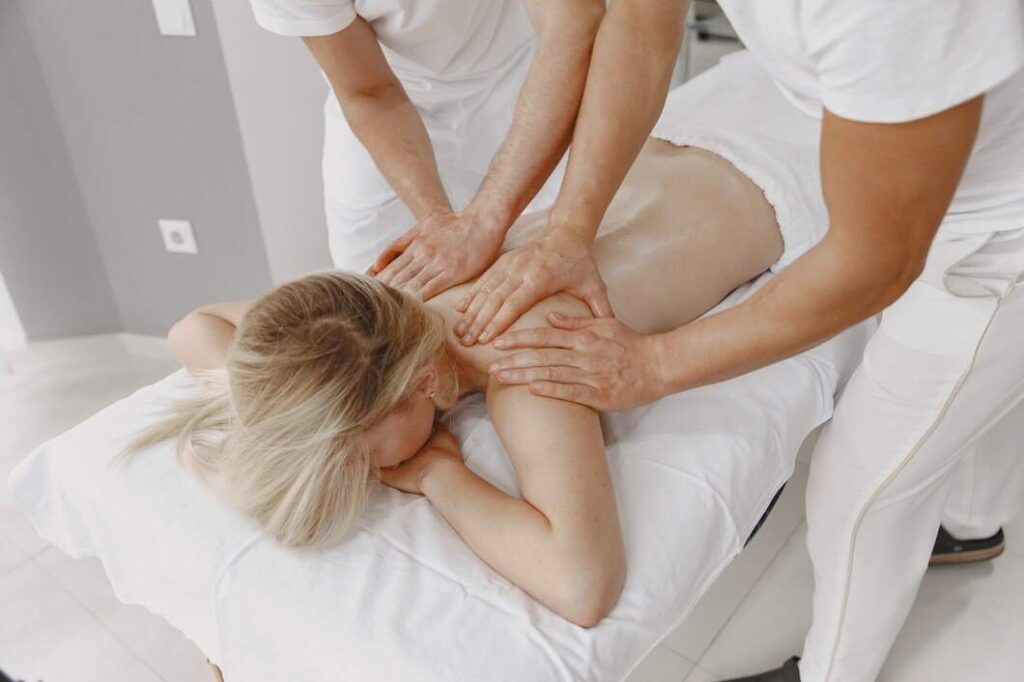Massage therapy is more than just a means of relaxation; it’s a vital part of holistic health and wellness. With the right training, massage therapists can profoundly impact their clients’ physical and emotional well-being. Whether you’re a newcomer to the field or an experienced practitioner looking to expand your expertise, pursuing further education is essential. Here are five transformative massage therapist courses that can elevate your skills and open new avenues in your career.
1. Swedish Massage Certification
Swedish massage is the cornerstone of many massage techniques and serves as the entry point for aspiring therapists. This course covers essential topics such as anatomy, physiology, and various strokes used to promote relaxation and improve circulation.
Key Components:
- Techniques including effleurage, petrissage, friction, and tapotement
- Understanding body mechanics to protect your health
- Client assessment and communication skills
Why It’s Transformative: Mastering Swedish massage equips you with foundational skills that enhance your confidence and effectiveness. It attracts a broad clientele, from those seeking relaxation to individuals managing stress and tension. This certification not only sets the stage for further specialization but also solidifies your role as a knowledgeable therapist in your community.
2. Deep Tissue Massage Training
Deep tissue massage focuses on relieving chronic muscle tension and pain through slower strokes and deeper pressure. This course emphasizes understanding muscle anatomy and how to effectively manipulate deeper layers of tissue.
Key Components:
- Advanced techniques for targeting specific muscle groups
- Assessment skills to identify areas of tension
- Understanding conditions such as fibromyalgia and chronic pain syndromes
Why It’s Transformative: By completing a deep tissue massage course, you can address more complex client needs and expand your range of services. Many clients specifically seek therapists skilled in deep tissue techniques, which can enhance your reputation and attract a dedicated clientele. Furthermore, understanding how to work with chronic pain conditions can position you as a go-to expert in your field.
3. Sports Massage Certification
For those drawn to the athletic community, a sports massage certification can be incredibly rewarding. This course prepares you to work with athletes, focusing on injury prevention, performance enhancement, and recovery.
Key Components:
- Techniques tailored for pre-event, post-event, and maintenance massage
- Understanding the physical demands of various sports
- Strategies for addressing common sports injuries
Why It’s Transformative: Sports massage allows you to tap into a specialized market, making connections with gyms, sports teams, and fitness centers. Your ability to provide targeted treatments can enhance athletes’ performance and recovery, fostering long-term client relationships. This specialization not only broadens your skill set but also positions you as a knowledgeable professional in a growing industry.
4. Myofascial Release Therapy
Myofascial release therapy is a gentle technique focused on releasing tension in the fascia, the connective tissue surrounding muscles and organs. This course teaches you how to assess and treat fascial restrictions that can cause pain and limit movement.
Key Components:
- Techniques for applying sustained pressure to fascia
- Understanding the role of fascia in the body’s overall function
- Strategies for integrating myofascial release with other modalities
Why It’s Transformative: Learning myofascial release can significantly enhance your treatment options for clients dealing with chronic pain or mobility issues. This approach is increasingly recognized in holistic health, providing you with an edge in attracting clients seeking alternative therapies. By mastering this technique, you can distinguish yourself in a competitive market and offer a comprehensive treatment experience.
5. Aromatherapy and Massage Integration
Integrating aromatherapy into your massage practice can provide clients with a richer, more holistic experience. This course covers the therapeutic properties of essential oils and how to safely incorporate them into massage sessions.
Key Components:
- Understanding the benefits and contraindications of various essential oils
- Techniques for blending oils to create personalized treatments
- Client assessment to determine the most suitable oils for their needs
Why It’s Transformative: Offering aromatherapy can significantly enhance the overall effectiveness of your massage treatments. Clients often seek a more integrated wellness experience, and being able to provide this additional layer of care can make your services more appealing. This skill not only diversifies your offerings but also fosters deeper client connections, leading to greater satisfaction and loyalty.
Conclusion
Investing in these five massage therapy courses can greatly enhance your career by providing you with vital skills and boosting your confidence. Each course offers distinct advantages that not only refine your practice but also broaden your client base and deepen your understanding of holistic health principles. As the demand for qualified massage therapists continues to rise, pursuing additional education can help you stand out in a competitive field and unlock your true potential.
By embracing this journey of learning, you can watch your career flourish while empowering others through the transformative power of touch. Whether you choose to specialize in a particular technique or broaden your skill set with various modalities, the right educational path can elevate your practice and significantly enrich the lives of your clients. Taking the initiative to expand your knowledge will not only benefit your professional growth but also enhance the overall healing experience you provide.



